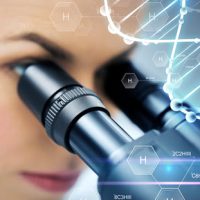DNA Matching And Genealogy Databases: What You Need To Know

DNA is considered inviolable under the law. However, new techniques used by law enforcement are causing concern for some. While DNA can give you an exact match, some DNA sampling techniques leave incomplete samples. In these cases, the match can only narrow down to a family, not an individual. At this point, investigators will work the leads, assess alibis, and make their case from there. At that point, you hope you don’t need DNA evidence to make your case. However, the evidence can be used to provide a lead.
Today, the role of genealogy databases in casting nets for potential suspects has resulted in positive captures including the Golden State Killer. It has also helped wrap up several cold cases across the country that occurred before DNA evidence evolved to this point.
Today, the biggest problem with using incomplete DNA is that it can cause false positives. In some cases, individuals are not even related to the family member that threw up the flag.
How does DNA analysis work?
99.9% of your DNA is similar to mine. That remaining .1% is how we determine if one person’s DNA is the same as someone else’s. Ideally, you would want to have a good DNA sample. Incomplete DNA samples are less likely to produce valid results. They are less likely to establish markers between one strand and another strand. Ideally, you would have 16 markers.
Realistically, a partial profile would indicate hundreds, thousands, or even millions of people instead of only one.
What can we really do?
DNA matching is never an exact science. Right now, there are different ways to gauge the efficacy of DNA profiling. One is more favorable to the prosecution than the other. This is the one we tend to use.
DNA can be used effectively to eliminate a suspect from a pool of suspects, but to convict a suspect, you should need more than DNA. That’s because DNA evidence tends to be overstated when it comes to juries who are programmed by the television to think that forensic scientists are omniscient. In reality, forensic scientists can only do a fraction of what Bones can do and juries tend to be quite disappointed when prosecutors cannot even determine the cause of death.
Scientifically, DNA evidence can be used to find family markers in genealogy databases which reduces the pool of likely suspects. This allows law enforcement to focus on a smaller pool of suspects. Often, they are able to leverage confessions or through circumstantial evidence, prove the suspect committed a crime.
Lastly, mix ups happen. In one case, a man was accused of rape in a city he never visited more than 200 miles away form his home. Non-DNA evidence eventually cleared him, but it was only because his DNA was on file from a car accident that it ended up in a rape kit.
Talk to a Tallahassee Criminal Defense Attorney Today
Tallahassee criminal lawyer Luke Newman, P.A. represents the interests of those charged with serious crimes, or convicted on unconvincing DNA evidence. Call today to schedule an appointment and learn more about how we can help.
Source:
wctv.tv/2023/01/05/science-used-catch-idaho-murder-suspect-also-used-tallahassee-cold-case/




